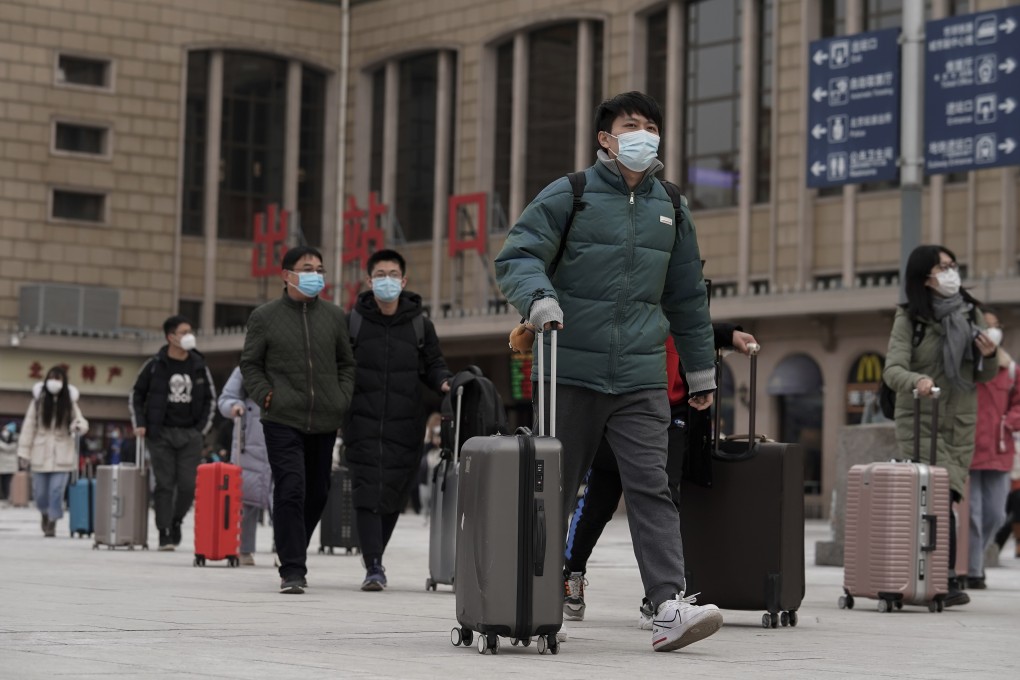Coronavirus: Chinese local authorities step up efforts to convince migrant workers to stay put over Lunar New Year
- Incentives range from gifts of ‘lucky money’, free mobile data and tickets to attractions as central government starts campaign urging people not to travel
- The country has reported more than 100 cases of Covid-19 a day for over a week and Beijing became the latest city to extend curbs on inbound travellers

China has been reporting 100-plus cases, most of them locally transmitted, for over a week – the highest number since the initial outbreak was contained in Wuhan in March. On Monday, the country recorded 186 local infections, including asymptomatic cases.
The spike means pressure on local governments is mounting in the run-up to Lunar New Year – which falls on February 12. The festival normally sees the world’s largest annual human migration as hundreds of millions of people travel home for family reunions.
So far 29 provinces have called on employees to stay where they are for the holiday, according to state news agency Xinhua.
Many cities are using monetary incentives to convince migrant workers to stay, such as red packets of “lucky money”, coupons, free mobile data and free tickets to tourist destinations.